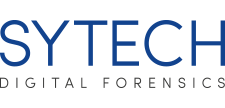You put your car through a MOT as an annual check to keep it operating smoothly, so why not do the same for your business? In today’s digital world, cybersecurity is more important than ever. With the modification of technology and the increase in cyber-attacks, safeguarding confidential and sensitive data is becoming more and more difficult for organisations. Luckily, organisations can undergo a similar MOT by certifying for Cyber Essentials Accreditation to rev up their cybersecurity. Continue reading, as we share a deeper insight on Cyber Essentials Accreditation including how you can benefit from it and explain why it is essentially your business’ MOT.
What Is Cyber Essentials Accreditation?
If you haven’t heard of Cyber Essentials Accreditation before, it is an internationally verified and government-backed scheme created by the National Cyber Security Centre which protects organisations against the most common cyber attacks. To secure accreditation, an organisation must take an online self-assessment questionnaire to evaluate how the following 5 key cybersecurity technical controls are implemented in their IT infrastructure:
1. Firewalls
A firewall acts as a cyber barrier to prevent access to private networks. When a cyber attacker attempts to gain access to information or data from a private network, it will identify the cyber threat and block them from gaining unauthorised access. This is only effective if the firewall is installed and managed properly. It can also monitor incoming and outgoing network traffic. A firewall can be physical hardware, software, software-as-a-service (SaaS), public cloud or a virtual private cloud.
2. Secure Configurations
Computer networks contain servers that help organise and access information. Another key technical control to effective cybersecurity is secure configurations. When an organisation has secure configurations in place, they help to prevent access where it shouldn’t be granted, reduce network vulnerability and prevent unauthorised actions.
3. User Access Control
Most organisation networks are built with users in mind. They also have network administrators who manage and have total access, ability and control over things within the IT infrastructure. Any organisation has to be mindful about who and how many individuals have administrator privileges. The more people with access, the higher the risk of common cyber attacks. For optimum cybersecurity, organisations will want limited access to computers, applications and networks to anyone without administrator privilege.
4. Malware Protection
Malware is a malicious type of software. It is used by cyber attackers to cause harm to computers and networks within an organisation. It is a criminal offence to install malware as it can damage or lock files, steal or disrupt confidential information and block access. Additionally, it’s not uncommon for cyber attackers to use a type of malicious software called ransomware to gain access to a network and keep it captive until payment is released. Organisations will need to set up their IT infrastructure to prevent such malware attacks.
5. Security Update Management
Any device that runs software is at risk of security errors, also known as vulnerabilities. These vulnerabilities are a potential opening for cyber attacks. All software must undergo regular security updates to spot any errors. As soon as a vulnerability is identified, it must be corrected for it to remain completely secure, this process is called ‘patching’.
Cyber Essentials vs. Cyber Essentials Plus
Once the self-assessment questionnaire is submitted, it will be reviewed by a qualified assessor. When the application is successful, a certificate will be awarded to the organisation. There are two types of certifications – Cyber Essentials and Cyber Essentials Plus. Cyber Essentials includes an online self-assessment questionnaire and Cyber Essentials Plus includes a technical assessment. This involves a qualified assessor who will verify an organisation’s cybersecurity technical controls to ensure they are correctly implemented. Many organisations prefer to apply for Cyber Essentials Plus accreditation, particularly those that hold a sustainable amount of sensitive data. Cyber Essentials Plus also offers a higher level of assurance than the basic version, Cyber Essentials.
How Can You Benefit From Cyber Essentials Accreditation?
Any business, no matter the industry or size can apply for Cyber Essentials Accreditation. Not only does it protect against a vast amount of common cyber-attacks, it also has additional benefits:
- Reassures your customers, investors and shareholders that you are serious about cybersecurity and you are working to secure your IT against cyber attacks
- Attracts new business with the promise you have cyber security measures in place
- Provides better visibility of potential cybersecurity risks and vulnerabilities
- For some government contracts, a Cyber Essentials certification is required
- Receive a £25,000 limit of Cyber liability insurance – if the whole organisation is certified and has less than £20m annual turnover (terms may apply).
Get Started With SYTECH Consultants
If you are thinking about putting your business through a MOT and obtaining Cyber Essentials Accreditation, we can certainly help you. At SYTECH Consultants, we are proud to be an issued certification body for Cyber Essentials and Cyber Essentials Plus. Our team of cybersecurity analysts provide support and assistance to organisations across the UK on Cyber Essentials. Similar to a vehicle MOT, you will need to complete an annual review of your cybersecurity every 12 months to renew your certificate.
To receive a quotation or to arrange a free consultation, contact us today via phone or email and we will be happy to get you started on your certification. Our qualified assessors are always on hand to answer any questions that you may have along the way.
